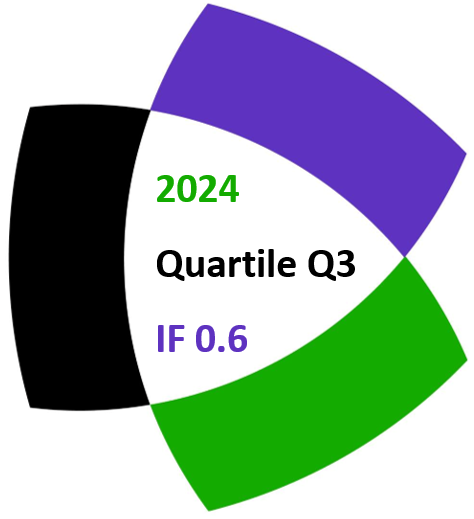Michel Planat and Patrick Solé
Notes on Number Theory and Discrete Mathematics, ISSN 1310–5132
Volume 21, 2015, Number 3, Pages 38–44
Full paper (PDF, 201 Kb)
Details
Authors and affiliations
Michel Planat ![]()
Institut FEMTO-ST, CNRS,
15 B Avenue des Montboucons, F-25044 Besançon, France
Patrick Solé ![]()
Telecom ParisTech, 46 rue Barrault, 75634 Paris Cedex 13, France.
Mathematics Department, King Abdulaziz University,
Jeddah, Saudi Arabia
Abstract
Prime number theorem asserts that (at large ![]() ) the prime counting function
) the prime counting function ![]() is approximately the logarithmic integral
is approximately the logarithmic integral ![]() . In the intermediate range, Riemann prime counting function
. In the intermediate range, Riemann prime counting function ![]() deviates from
deviates from ![]() by the asymptotically vanishing sum
by the asymptotically vanishing sum ![]() depending on the critical zeros
depending on the critical zeros ![]() of the Riemann zeta function
of the Riemann zeta function ![]() . We find a fit
. We find a fit ![]() [with three to four new exact digits compared to
[with three to four new exact digits compared to ![]() ] by making use of the Von Mangoldt explicit formula for the Chebyshev function
] by making use of the Von Mangoldt explicit formula for the Chebyshev function ![]() . Another equivalent fit makes use of the Gram formula with the variable
. Another equivalent fit makes use of the Gram formula with the variable ![]() . Doing so, we evaluate
. Doing so, we evaluate ![]() in the range
in the range ![]() ,
, ![]() with the help of the first
with the help of the first ![]() Riemann zeros
Riemann zeros ![]() . A few remarks related to Riemann hypothesis (RH) are given in this context.
. A few remarks related to Riemann hypothesis (RH) are given in this context.
Keywords
- Prime counting
- Chebyshev psi function
- Riemann hypothesis
AMS Classification
- Primary 11N05
- Secondary 11A25, 11N37
References
- Edwards H. M. (1974) Riemann’s zeta function, Academic Press, New York.
- Odlyzko, A. Tables of zeros of the Riemann zeta function, available at http://www.dtc.umn.edu/~odlyzko/zeta_tables/.
- Planat, M., & Solé, P. (2013) Efficient prime counting and the Chebyshev primes, J. Discrete Math. (Hindawi), Article ID 491627, 11 pp.
- Borwein, J. B., Bradley, D. M., & Crandall, R. E. (2000) Computational strategies for the Riemann zeta function, J. Comp. Appl. Math., 121, 247–296.
- Robin, G. (1984) Sur la difference Li(θ(x)) − π(x), Ann. Fac. Sc. Toulouse, 6, 257–268.
- Pletser, V. Conjecture on the value of π(1026), the number of primes < 1026, Preprint 1307.4444 [math.NT].
- Davenport, H. (1980) Multiplicative number theory, Second edition, Springer Verlag, New York.
- Skewes, S. (1933) On the difference π(x) − li(x), J. London Math. Soc., 8, 277–283.
- Burnol, J. F. The explicit formula in simple terms, Preprint 9810169 (math.NT).
- Deléglise, M., & Rivat, J. (1998) Computing ψ(x), Math. Comp. 67, 1691–1696.
- Alamadhi, A., Planat, M. & Solé, P. (2013) Chebyshev’s bias and generalized Riemann hypothesis, J. Alg., Numb Th.: Adv. and Appl., 8, 41–55; Preprint 1112.2398 (math.NT).
Related papers
Cite this paper
Planat, M. & Solé, P. (2015). Improving Riemann prime counting. Notes on Number Theory and Discrete Mathematics, 21(3), 38-44.


